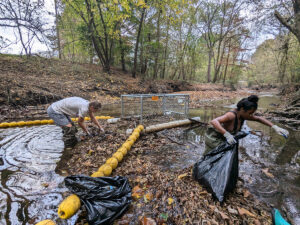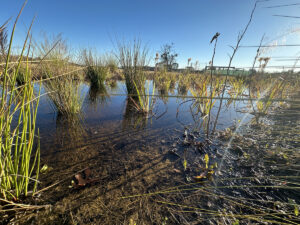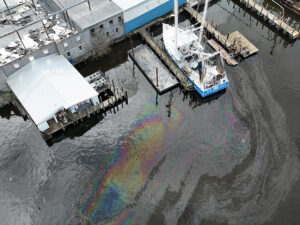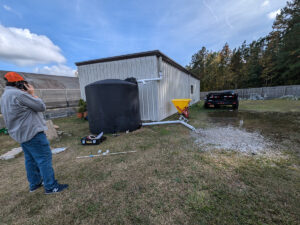News
Action Alert: fund clean-water programs and policies
ACTION ALERT, Legislative, Sound Rivers
Posted on March 30th, 2023North Carolina Gov. Roy Cooper recently release a state budget that has some clear priorities that we support.
The North Carolina House of Representatives will be voting on their version of a 2023-24 state budget any day now. And now is your opportunity to ask them to fund programs and policies that promote clean water, provide support for communities suffering from flooding and removing pollution sources from the floodplain.
Highlights from Cooper’s budget are:
A 23% increasing in funding for the North Carolina Department of Environmental Quality. For years, the department has suffered from lack of funding, leading to fewer staff, fewer inspections, less-frequent monitoring, a backlog of permit applications and renewals and public records requests. Funding NCDEQ means the agency can do its job, investigating sources of pollution and enforcing regulations that are the law in North Carolina.
$20 million in funding for the Swine Floodplain Buyout Program. It’s a popular program that has not been funded since 2019. After Hurricane Floyd devastated eastern North Carolina in 1999, the N.C. General Assembly created this programs that purchases conservation easements on industrial swine facilities located in the 100-year floodplain, closes swine waste lagoons and purchases swine production and development rights. It reduces the risk of swine waste lagoons being inundated by flooding and protects water resources and communities from hazardous waste exposure. Recent mapping of North Carolina found that 59 hog and 97 poultry facilities still exist in floodplains or within a 100-foot buffer around them. The buyout program is 100% voluntary and is a win-win for eastern North Carolina.
$987,900 to complete the Flood Resiliency Blueprint, due by the end of the year for the Neuse River Basin. The blueprint will lead to a set of projects and funding strategies that the state and other government entities can put in place to reduce flooding, mitigate the impacts of flooding when it does occur and recover afterward. It is a first-of-its-kind program in North Carolina and represents the largest statewide flood mitigation investment in state history.
Write a letter to your representatives today to encourage them to vote in favor of clean water!
Related News

Sound Rivers to host press conference before Blounts Creek public hearing
November 14th 2024

Honors college wraps up trash trap adoption
November 14th 2024

Stormwater education takes off
November 14th 2024

Sound Rivers shares mission, programs at science festival
November 14th 2024

Fuel spill in Oriental Harbor sparks Coast Guard investigation
November 14th 2024

Specialist on the hunt for Smithfield pollution source
November 7th 2024

Riverkeeper follows up on Swim Guide fails
November 7th 2024

Greenhouse gets watering system via cistern
November 7th 2024


